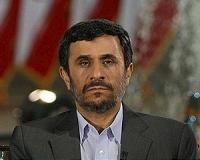| . |  |
. |
Tehran (AFP) Dec 1, 2010 Iranian atomic energy chief Ali Akbar Salehi said on Wednesday that the assassination of a top nuclear scientist was a warning from the West ahead of new talks on Tehran's atomic programme. "These wicked people wanted to show their hideous side which demonstrates their carrot-and-stick policy in the run-up to the new nuclear talks," state television's website quoted Salehi as saying. He was speaking at the funeral of Majid Shahriari, the scientist who was killed by unidentified bombers in Tehran on Monday. Salehi did not specify the country he held responsible for the murder but other officials have pointed the finger at Iran's arch-foes Israel and the United States. Iran's chief nuclear negotiator Saeed Jalili, who is to head his country's delegation to the talks with the major powers in Geneva next week, hit out at Western governments as he joined the mourners. "They used all the capabilities at their disposal, like passing resolutions, imposing sanctions and piling on political pressure but they did not gain anything," state television's website quoted him as saying. "Today they have resorted to assassination, which shows their desperation and the dead end they have reached." Like hardline President Mahmoud Ahmadinejad on Tuesday, Jalili said that UN Security Council member states shared responsibility for the murder as they had named Iranian nuclear scientists in a blacklist contained in sanctions resolutions. "This is a big scandal for the UN Security Council, when the terrorists execute its resolution and the list issued by the Council resembles the list the terrorists have," he said. On Tuesday, Ahmadinejad threatened legal action against the council's five permanent members -- Britain, China, France, Russia and the United States -- if there is any further act of violence against Iranian scientists. "As God is my witness, if this happens again, we will sue each permanent member of the United Nations Security Council," Ahmadinejad said. "You are wrong. We attribute these crimes to those who passed the resolution against us, since they mentioned the names of our scientists in it." Shahriari was not on the blacklist but another nuclear scientist, Fereydoon Abbasi Davani, who was wounded in a second bomb attack on Tuesday, was named in Security Council Resolution 1747, adopted in March 2007. Ahmadinejad said on Wednesday that if next week's talks are to be productive, Western governments need to adopt a more constructive approach. "Now they are saying they want to negotiate. We have said repeatedly that we have always been in favour of talks based on logic, law and justice," the Mehr news agency quoted him as saying. "But they should know that if they want to bully, then the negotiations will not produce any results." Jalili said that the talks, which are to be fronted by the European Union's chief diplomat Catherine Ashton on December 6 and 7, need to be on the basis of three core principles set by Iran. He was referring to three conditions set by Iran for the talks -- that they be based on "engagement and cooperation," that world powers not resort to threats and pressure, and that the issue of Israel's undeclared but widely suspected nuclear arsenal be up for discussion. On a visit to Kuwait on Wednesday, Iran's Foreign Minister Manouchehr Mottaki reiterated that Tehran would refuse to make any concessions in Geneva. "We support talks, negotiations and dialogue," he told a news conference. "But this does not mean that we will make concessions or retreat from our principled position."
Share This Article With Planet Earth
Related Links Learn about nuclear weapons doctrine and defense at SpaceWar.com Learn about missile defense at SpaceWar.com All about missiles at SpaceWar.com Learn about the Superpowers of the 21st Century at SpaceWar.com
 Iran says nuclear scientists and atomic programme attacked
Iran says nuclear scientists and atomic programme attackedTehran (AFP) Nov 29, 2010 A defiant Iran admitted Monday that its atomic programme may have come under cyber-attack as one of its top nuclear scientists was killed by a bomb attached to his car in the capital and another was wounded by a similar device. President Mahmoud Ahmadinejad blamed the attacks against the two senior scientists in Iran's controversial nuclear programme on Israel and Western powers led by the U ... read more |
|
| The content herein, unless otherwise known to be public domain, are Copyright 1995-2010 - SpaceDaily. AFP and UPI Wire Stories are copyright Agence France-Presse and United Press International. ESA Portal Reports are copyright European Space Agency. All NASA sourced material is public domain. Additional copyrights may apply in whole or part to other bona fide parties. Advertising does not imply endorsement,agreement or approval of any opinions, statements or information provided by SpaceDaily on any Web page published or hosted by SpaceDaily. Privacy Statement |